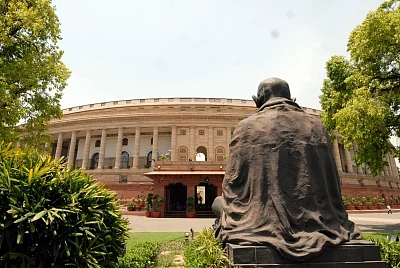In what is being called a historic session, the Parliament has passed 30 Bills in its first effective session after the formation of the 17th Lok Sabha. It is being considered as the addition of another feather to the Bhartiya Janta Party’s cap after their landslide victory in the general elections. Of course, that’s not saying that it convoked denunciation from the Opposition as well as from various sections of the general public.
This concluded session was anything but productive and has been the least fecund one recorded in decades marked with continued protests and adjournments with little room for thoughtful conversations over the Bills. Some political analysts had reservations regarding passing over legislations without much deliberation in the Parliament as the government had their number in the Houses. Various Members of Parliament from Opposition branded it as legislations passed in haste. “Passing legislations is not fast food” was one such statement.
Speedy Bills Dangerous for Democracy
In a Parliamentary form of democracy, a Bill can be introduced in any House of the Parliament. The legislative procedure in India for the Union Government requires that there should be three readings of the Bill which further allows the Speaker in Lok Sabha and chairman in Rajya Sabha to refer the Bill to standing committee for examination and taking suggestions, if any.
Additionally, it can also be referred to a joint select committee of the Houses. The government is, albeit, not bound to accept the recommendations of the select committee. In a Parliamentary democracy such as ours, it is the foremost function of the Parliament to formulate laws. It is often forgotten that the Parliament is an embodiment of the people’s will and thus, the standing committee works for its effective functioning.
It has been vehemently argued that the whole process of introduction of the Bill in the House to receiving the President’s assent entails a substantive amount of time, especially because of the debate it associates with. Our Parliament is supposed to be a marketplace of ideas. Bills, when intensely debated, not only exhibit representation of ideas but also assert that democracy is not run by numbers but a well-placed system and thus, views of everyone ought to be heard.
The passing of Bills in a hurry often questions the government’s intent. The American philosopher, Cornel West, had said that, “Democracy demands a leap of faith”. If Bills being passed in such promptitude are allowed to stand, then this would result in the failure of this conviction. Passing of legislations in a scurry is directly proportionate to the popularity of the government. It is a symbol which signifies the gravitas of any party. But, it is often forgotten that touting this speed as an important factor may result in the government failing the ambitions of its subjects.
A ‘Historic’ Disservice?
The 17th Lok Sabha’s first session has indeed been historic but many would remember this as an attempt to consolidate powers at the Centre. It would also be remembered as a pursuit to misuse majority in the House and remain oblivious to voices that don’t parley with the state. It would also be recalled as when new amendments were passed without subjecting the draft law to scrutiny by the Parliamentary standing committee. Such committees provide platforms for comprehensive as well as exhaustive analysis and discussion over a Bill.
There is adequate representation from each party. Members in such a committee would not be driven by party whips and enjoy wider liberty to thoroughly examine the Bill as against the discussion in open Houses where party positions take precedence. They indulge minute details in a way for which the Parliament lacks time. They can demand answers from ministries, ask for implementation reports and suggest amendments as they deem fit. Standing committees have acted as whetstones to sharpen legislations in the past.
One such example is the Motor Vehicles (Amendment) Bill, 2016, passed by the Lok Sabha. The duration between the introduction of that Bill and its passing was eight months, during which it was thoroughly scrutinised by the Standing Committee. The committee suggested a few amendments, some of which were accepted by the ministry. These committees are often referred to as mini-parliaments given their nature
Amongst the various Bills passed by the government in the recently concluded session, it managed to pass the RTI Amendment Bill, the UAPA Bill, the Triple Talaq Bill even as opposition members roared and demanded them to be referred to the Standing Committee. On face value, these amendments will not strike to be harmful. But, only when a closer analysis is done, one would realise that these amendments are cloaked and are being executed to restructure laws to the government’s own leverage.
The timing is also not innocuous. Our Constitution provides a framework for governance and bestows its people with guarantees which are considered sacrosanct. These guarantees are often contested in exercising their full value when non-aligned with the state. The true essence of law-making is thus effectuated only when the MPs are given ample time to read the Bill, form an opinion, raise arguments and most importantly, when controversial Bills are sent to these standing committees where they are analysed these using their microscopic skills. Strengthening this system will only ensure effective oversight of the working of the Parliament.
It is here that our true democratic values are fully realised.
(Momena Qaisar is a final year law student pursuing LLB (Hons) from Faculty of Law, Delhi University and has a keen interest in the Indian Legal System. This is an opinion piece. The views expressed above are the author’s own. The Quint neither endorses nor is responsible for them.)
(The Quint will no longer be on WhatsApp, owing to changes in its policies regarding news publishers. You can now get the latest news updates on our Telegram channel. For handpicked stories every day, subscribe to us on Telegram.)
